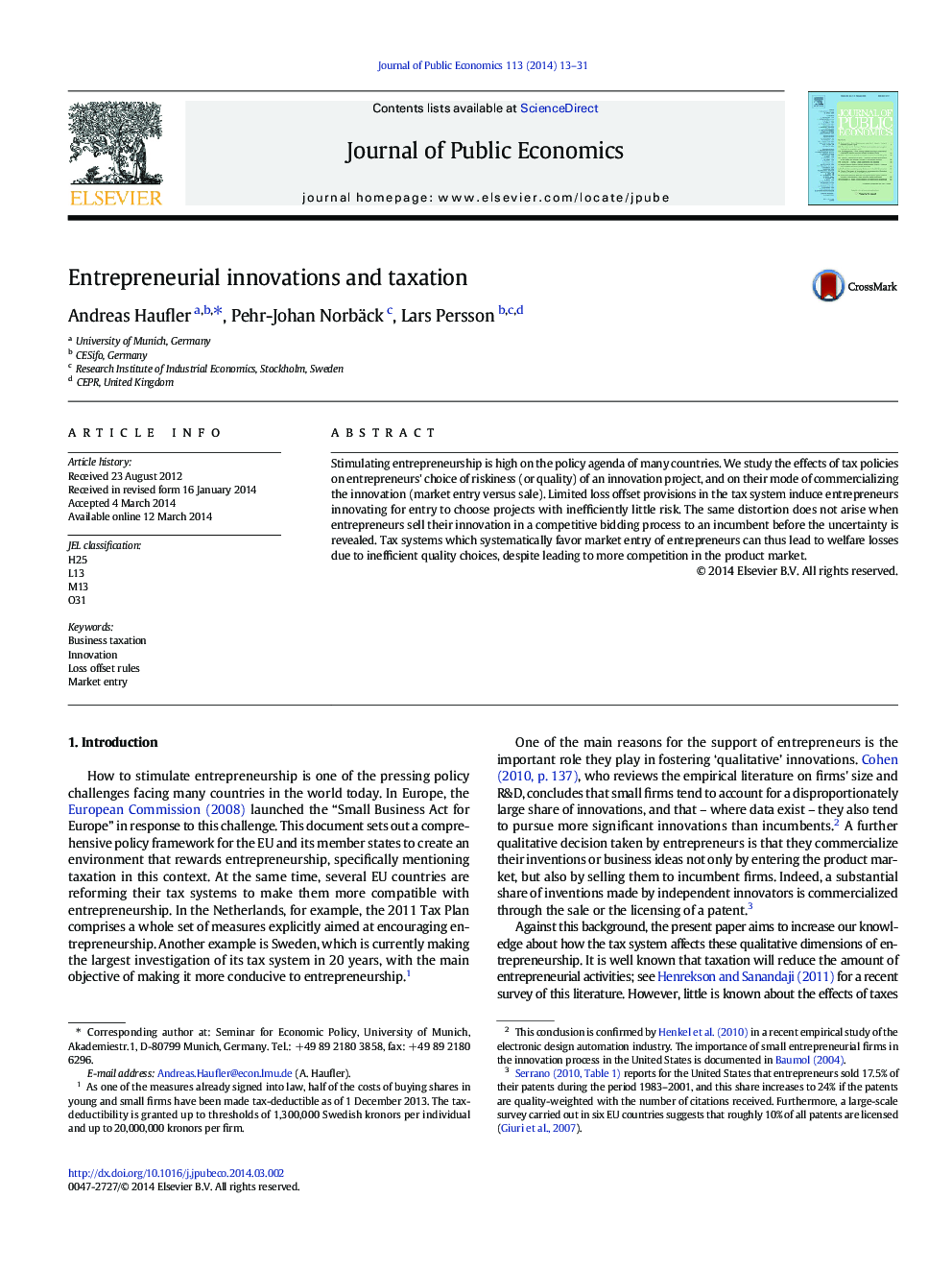| Article ID | Journal | Published Year | Pages | File Type |
|---|---|---|---|---|
| 7370342 | Journal of Public Economics | 2014 | 19 Pages |
Abstract
Stimulating entrepreneurship is high on the policy agenda of many countries. We study the effects of tax policies on entrepreneurs' choice of riskiness (or quality) of an innovation project, and on their mode of commercializing the innovation (market entry versus sale). Limited loss offset provisions in the tax system induce entrepreneurs innovating for entry to choose projects with inefficiently little risk. The same distortion does not arise when entrepreneurs sell their innovation in a competitive bidding process to an incumbent before the uncertainty is revealed. Tax systems which systematically favor market entry of entrepreneurs can thus lead to welfare losses due to inefficient quality choices, despite leading to more competition in the product market.
Related Topics
Social Sciences and Humanities
Economics, Econometrics and Finance
Economics and Econometrics
Authors
Andreas Haufler, Pehr-Johan Norbäck, Lars Persson,
